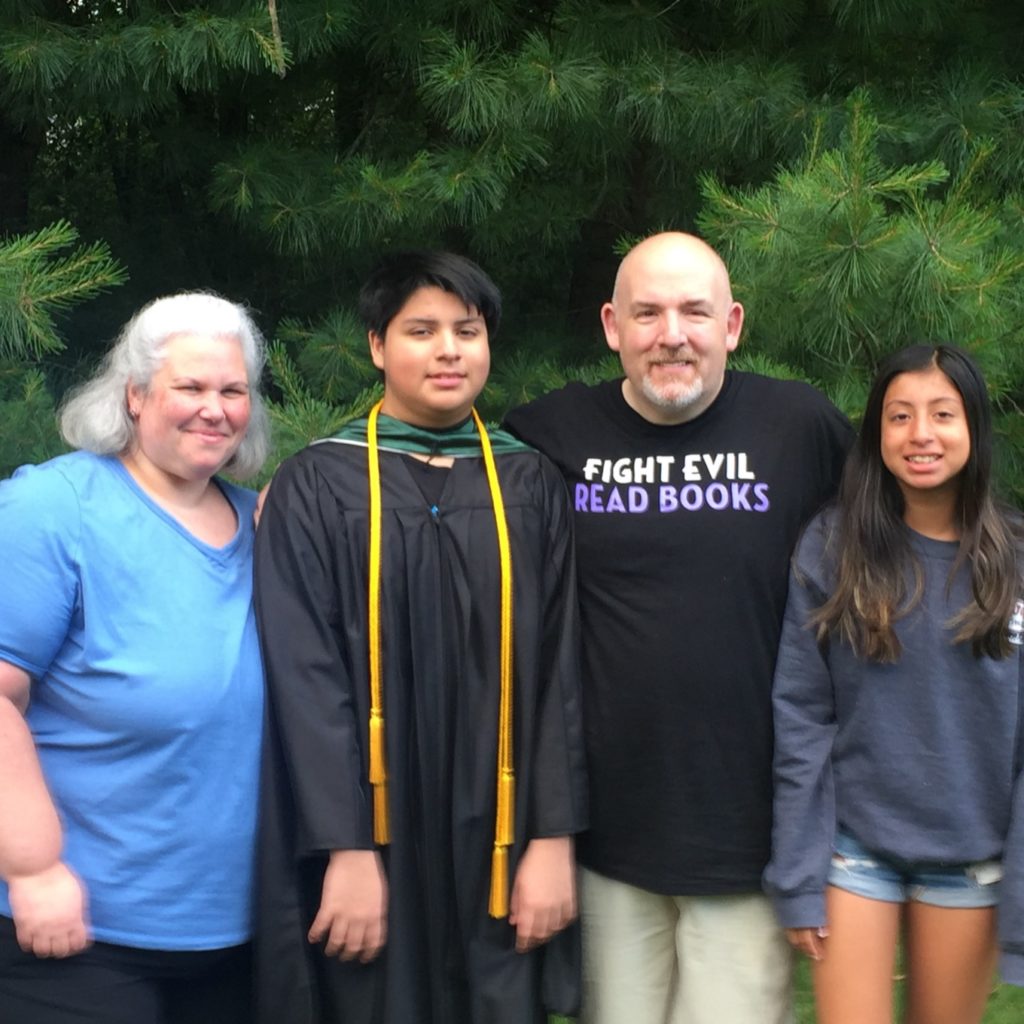If only I had known that I was a candidate canary in the school board coal mine …
It was only a few years ago when I made the decision to (again) run for my local school board, West Windsor-Plainsboro Public Schools District. Having previously served as a school board chairman in Virginia years before, I swore to myself that I would never do it again. Serving on a local school board is one of the most thankless jobs in public service, one that sucks both your time and your soul.
But in 2018, I was ultimately driven to seek the same position in New Jersey. Why? I was concerned when the school board made the decision as to whether to have armed police officers in the schools behind closed doors, away from public scrutiny, from educators, and from community voice. I was worried that the district was about to pass a nine-figure schools bond without community discussion of our priorities, whether we needed such money, and how to spend it if we did.
As a special education parent, I was angry about how the district sought to constantly marginalize too many families in our town, including special ed families and those with Black or Brown children. That anger only grew when, advocating for my own son, I had school district officials declare they didn’t care what state or federal law said, they only cared about school district “law.”
And I believed that no candidate should be given a “free ride” into office, that all campaigns should have multiple candidates to give the public a choice and to ensure a discussion of the key issues.
So I foolishly decided that I would have to be that voice, even if it meant running against a three-term incumbent who was already slated to take over as the new president of the school board two months following the election.
Having worked in politics at the local, state, and federal levels previously, there is very little that surprises me when it comes to political campaigns. I expected to be called a carpetbagger, as I had only lived in the community for four years, as opposed to the incumbent’s decades. I expected, as I voiced concerns over school security and Class III officers, that someone would go to my past school board service in Virginia, attacking me for allowing police officers to do K-9 searches of our local high school because of a growing concern with a synthetic drug among area teens. I was disappointed, but not surprised, to be told, days after filing my paperwork in July, that there would be no debates or public forums featuring the two candidates as the “powers that be” saw no workable days in the three-plus months leading into the campaign. I even found it a little humorous when some supporters of my opponent decided to take to social media to suggest that I might be guilty of robbing a local bank, following the release of grainy photo of a fat, bald suspect.
But I wasn’t prepared for being warned that I would likely face a federal investigation against me for exercising my right to free speech. I spent much of my campaign questioning the transparency of our school board and school district, demanding that parents and taxpayers be given a voice in the process. For that, I was taken aside far too many times, given a direct warning that U.S. Congressman Adam Schiff (of President Trump impeachment fame) would have his committee look into my past and my motivations. After all, didn’t I realize my opponent’s husband was college roommates with Schiff, and questioning the motives of her was questioning the motives of her husband and all of those in their orbit?
I also wasn’t prepared for one of the community’s leading political “influencers” to summon me to his house one weekend morning weeks before election day. I was patronized, told I had run a good campaign for an outsider who didn’t really understand the community, but that my calls for transparency and community input needed to stop. We had one of the top school districts in the state, after all, and such discussions only made us look bad. I was then offered the carrot that if I took my foot off the campaign gas, and just let election day happen, there “might be a political future for me down the road.”
So when I look at my experiences and I look at the past six months of local school board activities in the news, I realize that none of this should surprise us. And I’m saddened that too few of us realize the importance of community voice, including classroom teachers, and the potential damage of the significant lack of sunlight on local public education.
We have a problem when local school boards want to make decisions about what is taught in community schools, but abhor having parents involved in the discussion. That problem is compounded when we publicly declare that parents — and voters — should have no say in local decisionmaking. And it is doubly compounded when parents believe the only say available to them today is through vitriol and threats against local office holders.
We have a problem when local school boards seek to determine what books should be allowed on library shelves or in classroom collections, without hearing from the students, educators, and authors that are impacted.
We have a problem when the National School Boards Association — a group that I was once a proud member of — seeks the involvement of federal law enforcement to silence the First Amendment rights of concerned families and community members.
We have a problem when too few of us recognize that we have a problem. And we have a true crisis when we try to convince others that the problem we face is public engagement, transparency, and community involvement.
When I lost my 2018 campaign, I was immediately at peace with it. My wife (my campaign manager) and I ran the race for the right reasons, focused on the necessary issues, and put forward as noble a campaign as we could. My big regret comes in not continuing to advocate for these important issues. The need for transparency and public discourse should never go away. The need to reject backroom political dealings should never retreat.
If this canary had sung, he would have loudly advocated for parent voice, reminding elected officials that they are elected by the voters, are accountable to the voters, and need to hear from the voters. This is particularly true in local education politics, where the issues may seem small, but where the stakes are often enormous.
We shouldn’t be surprised that local school boards are often run like mini-fiefdoms, where only a handful of people have say and not sitting at the “cool kids” table is supposed to silence the majority. If we are going to entrust our local school boards with the care and education of our kids, we must demand that they hear us as they decide on the policies for our kids.
Local school boards shouldn’t just blindly follow what the community demands. But they need to be transparent, inclusive, and respectful in the information-gathering and decision-making process. Or they must be prepared to be voted out, replaced by others who see the value of community engagement.



